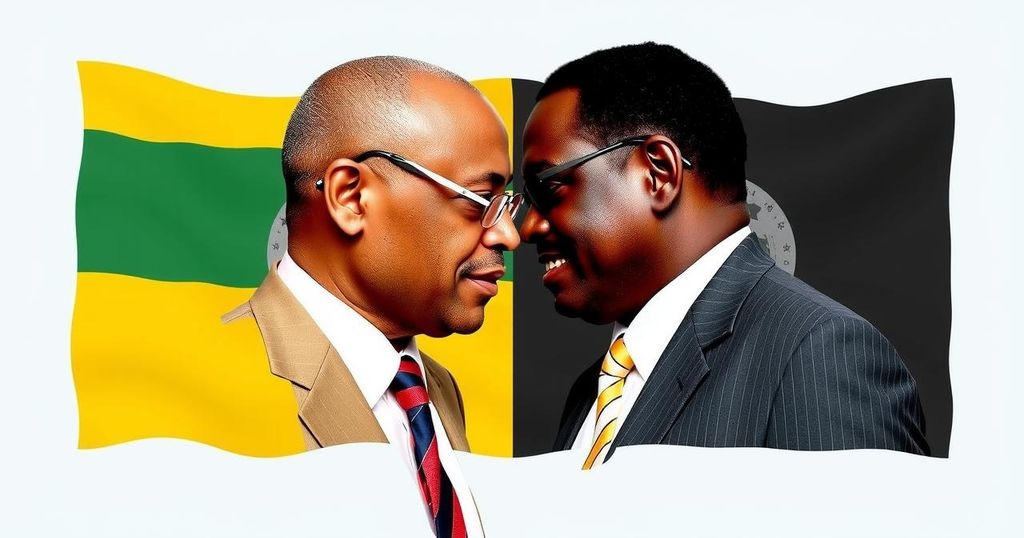Global news
“ TRIANGLE OF DEATH, AFRICA, ALLIED DEMOCRATIC FORCES, BENI, CIVIL WAR, CONGO (KINSHASA), DEMOCRATIC REPUBLIC OF CONGO, DRC, ERINGETI, FELIX KULAYIGYE, HUMANITARIAN, HUMANITARIAN CRISIS, IRUMU, ITURI, KAMANGO, KAMPALA, KASINDI, KIDNAPPING, MAMBASA, OICHA, REAGAN MIRIVI, RFI, RWANDA, RWENZORI, UGANDA, UGANDAN MILITARY, UNITED NATIONS
Jamal Walker
0 Comments
Uganda’s DRC Mission Under Scrutiny Amid Allegations of Double Dealing
Uganda’s military mission in the DRC, while having achieved some success against the ADF, faces scrutiny amid allegations of covertly supporting rival rebels. Operation Shujaa has improved security in parts of eastern DRC but raised questions about Uganda’s true motives, particularly regarding its economic interests in the region.
Three years since Ugandan troops entered eastern Democratic Republic of Congo (DRC) to combat rebels associated with the Islamic State, the operation has produced mixed outcomes. There are allegations that Uganda may be covertly supporting another local rebel faction, thus raising pertinent questions about its true intentions. Launched with the aim of restoring security, Operation Shujaa has successfully expelled the Allied Democratic Forces (ADF) from several strongholds near the Ugandan border, providing more safety for some residents. The ADF remains the deadliest armed group in eastern DRC, reportedly responsible for the deaths of approximately 1,000 individuals in 2023 alone.
Operation Shujaa began alongside Congolese forces and has resulted in noticeable security improvements in certain regions. The lifting of curfews in cities like Beni and the reduced need for armed escorts along important routes indicate progress. For example, Brigadier General Felix Kulayigye stated that “[the ADF’s] ability to cause harm has been degraded.” However, despite having lost ground, the ADF has expanded its operational range and continued to target civilians as it seeks revenge against military actions.
Accusations regarding Uganda’s potential support for the M23 rebel group has sparked controversy over the nation’s commitment to eliminating the ADF. A UN report recently highlighted Uganda’s alleged facilitation of M23 movements across borders, leading DRC President Félix Tshisekedi to demand verification of Uganda’s sincerity in securing peace. Critics argue that Uganda’s military strategies appear focused primarily on securing its own borders, rather than fully committing to dismantling the ADF threat.
Additionally, Operation Shujaa serves Uganda’s economic interests, particularly as eastern DRC is a vital market for its gold exports. The geopolitics of the region are complex, with Uganda needing to balance its relations with both DRC and Rwanda, particularly given Rwanda’s support of M23. Analysts observe that Uganda’s military involvement corresponds not only to security concerns but also to its desire to protect vital trade routes and economic projects in the region, reflecting a strategic necessity to navigate competing interests effectively.
The military operation conducted by Uganda in the DRC is primarily aimed at combating the ADF, a notorious group linked to the Islamic State and responsible for numerous atrocities against civilians. The mission’s objectives extend beyond mere security, encompassing economic considerations related to trade, resource management in gold, and infrastructural development. However, Uganda’s dual role has raised suspicions regarding its genuine intentions, particularly after allegations surfaced suggesting possible support for rival rebel factions. This has led to a critical examination of Uganda’s motivations and the overall implications for regional stability.
In summary, Uganda’s military intervention in the DRC has produced both significant security gains against the ADF and fueled controversy over alleged duplicity in supporting rival groups like M23. While Operation Shujaa has improved stability in some areas, it also serves Uganda’s economic interests in terms of trade and regional influence. A nuanced understanding of the interplay between security and economic motivations is essential for evaluating the effectiveness and intentions underlying Uganda’s actions in the DRC.
Original Source: www.rfi.fr




Post Comment